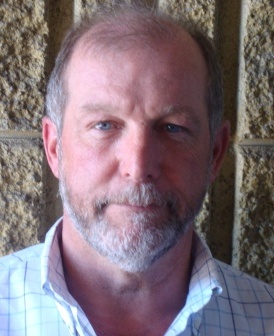Fleet Auto News: Paul, describe the type of fleet you and your team manage?
Paul: The City of Melville owns and maintains a fleet inventory with a replacement valuation of approximately $16.8 million. This portfolio comprises 460 separate items made up of small commercial and passenger vehicles, waste trucks, sweepers, tractors, mowers, trailers and numerous items of small plant.
To effectively manage these assets the city takes a tactical approach using a fleet asset management plan. This lets us identify the size and value of assets, establish current levels of service, determine future demand and the risk profile that ownership attracts. Life cycle management of the inventory is examined to identify opportunities to achieve better value for money.
The ownership of a large fleet operating in public space poses a considerable risk to the city. As such its important that fleet recognises and regularly reviews these risks and continues to take a risk management approach in developing future fleet replacement.
Fleet Auto News: What is it about fleet that you enjoy?
Paul: The diversity of the work and the dynamics that allow you to be creative, perceptive, unorthodox, but also disciplined, conservative and strategic.
Building a great culture and team that believes in realistic goals, best possible outcomes, open communication and encouraging each other to reach our full potential.
Fleet Auto News: What has been your biggest challenge in fleet to date?
Paul: From Wesfarmers I transferred to the Australian Railroad Group, formerly Westrail, were I was tasked in changing a leased government fleet of 360 vehicles to a fully owned private fleet, including trucks and road rail vehicles all within 16 months. This was more a cultural challenge due to the changes in employees expected entitlements and acceptance of transition.
Fleet Auto News: What are the top three challenges for a fleet manager today?
Paul: Cultural commitment by employees, increasing budget accountability, acceptance of change and new technology.
Fleet Auto News: Is there a strong fleet community in Western Australia?
Paul: Within fleet management only a limited communication community exists within local government. We only ever meet at seminars or training courses mainly held by IPWEA . Considering the size of local governments in WA and the combined fleet budgets, commitments and exposure to all elements of fleet management it’s very disappointing.
It never ceases to surprise me when meeting other organisations at fleet seminars the consistent silo approach, duplication of services and reluctance to accept change that other organisations continue to perpetuate.
Fleet Auto News: Do you think electric vehicles will become mainstream in Australia within the next 10 years?
Paul: Currently electric vehicles are uneconomic to purchase on a fleet and general public basis due to high purchase values and limited vehicle selections.
I cannot see this changing within the next 10 years unless there is a radical technology development that allows large distributors access to build cheap and commercially acceptable vehicles.
Fleet Auto News: Will the end of local manufacturing change the selection process for vehicles in your fleet?
Paul: No this will have no affect. As the distribution of vehicle brands will remain the same irrespective of were they come from.
Fleet Auto News: What is your favourite car in the fleet?
Paul: I don’t have a favourite car but I do like the Dennis Eagle trucks we use for waste vehicles, however my garage wouldn’t be big enough.
Fleet Auto News: If you were a collector, which is the one car you would keep in the garage to admire?
Paul: I currently own a 1968 Red Ford Mustang however if money was no object then it would have to be a Jaguar F Type Convertible, black with cream leather.






